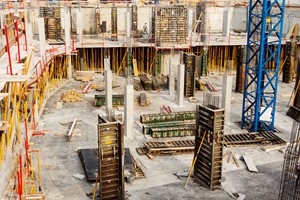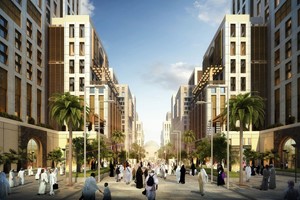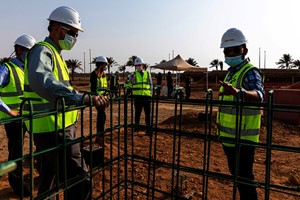Leading international construction consultancy, Linesight, has released its latest Middle East construction industry findings, underlining the impact of COVID-19 on the sector in the UAE, Saudi Arabia, Bahrain, and Kuwait.
As part of the company’s Knowledge Centre, the findings highlighted ongoing economic volatility however, the construction industry across the region is expected to be buoyed by a range of government stimulus packages. As a result, modest growth within the industry is expected to be realised in 2021, with recovery already being witnessed in some countries.
Ciaran McCormack, Regional Director for Linesight Middle East, said: “According to GlobalData, the UAE construction sector recorded growth of 3.3 percent in 2019. Pre-COVID, this figure was expected to increase to 4.3 percent in 2020, predominantly driven by a range of government initiatives. With the onset of the virus and the subsequent drop in oil prices, output is expected to contract to 1.9 percent this year, before recovering to 3.8 percent in 2021.
“This is predominantly a result of construction remaining on-site in the UAE during the pandemic, albeit with reduced productivity and site capacity inline with social distancing guidelines. Therefore, the projected contraction is relatively mild, with a return to growth in output expected next year.”
In Saudi Arabia, spending on infrastructure alone in the next 20 years is expected to top US$1.1 trillion. Several multi-billion-dollar infrastructure projects relating to Saudi Vision 2030 and the country’s drive to become a tourism hub, have lifted the construction industry.
These projects include the US$500 billion NEOM project, US$20 billion Diriyah Gate Development, US10 billion Red Sea Development, and the US$5 billion Qiddiya Entertainment project.
“As a result of the IPO of Saudi Aramco and the Public Investment Fund (PIF), we expect to see sustained investment in the construction industry, a result of a significant number of projects alongside the ongoing megaprojects, which will keep the industry buoyant,” added McCormack.
Elsewhere in the GCC, the construction industry is expected to witness a sharp contraction. According to Linesight, the annual GDP from construction in Bahrain fell slightly from US$631 million in Q4 2019 to US$624 million in Q1 2020. This is likely to be exasperated by increased preliminary costs as a result of setting up sites to meet COVID-19 restrictions, placing further burden on the Bahraini construction industry.
The Government of Bahrain has however introduced a range of measures, including a US$11.4 billion stimulus package, will help offset some of the detrimental impacts of the virus.
In Kuwait, a survey by Bensirri public relations revealed that 45 percent of business owners suspended their activities, with another 26 percent potentially declaring bankruptcy as a result of COIVID-19 and low oil prices.
The construction industry in the country is expected to witness an uptick, in line with the country’s Vision 2035. A range of transport and healthcare related infrastructure, commercial buildings, industry facilities, water distillation facilities and renewable energy projects should bolster the construction industry.
“As an industry that plays a significant role in the economic development of the region, the full impact of the pandemic for construction remains to be realised, but already, it is evident that the effects of the lockdowns are being felt and will impact underlying fundamentals, said McCormack
“On a positive note, pandemic-related restrictions have served as a catalyst for further advancements in the technology sector. The data centre market in the GCC, in particular, has remained relatively resilient as the shift towards virtual working platforms and online shopping is compounded by longer-term trends, such as investments in 5G technology, this is creating demand in the technology market segment,” he concluded.
Linesight has a global reach, with staff in 22 offices worldwide, including the Middle East, Europe, Asia Pacific, and the USA. The company is currently working in more than 40 countries on project developments worth more than US$31 billion globally and US$7 billion in the GCC.














